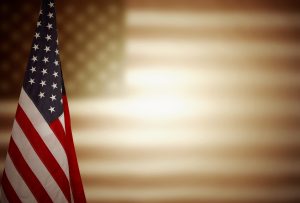There is a stigma about members of the service seeking out medical help. “Sickbay Commando,” was the term in the Navy. When someone was not at the morning muster and in sickbay, someone would always say “oh they are a sickbay commando.” This negative mentality that my fellow sailors had around seeking help for pain definitely made me weary when acknowledging my own injuries. This work atmosphere causes sailors to work through injuries. If you are not doing your job someone else is and you have to be working to advance. If more focus was put on our physical and mental health maybe it would prevent further pain from perpetuating not only physically, but mentally as well.
Always feeling like I had to maintain this image of the fearless leader forced me to stifle my injuries, but of course, avoidance only hurt me more and that made my fear of shortcoming my crew a reality. This is my journey through my physical pain, mental pain from being medicated and finding a better solution through cannabis. Mental health and PTSD have some of the same stigmas. Everyone suffers differently through their own demons this is what worked for me and my track through.
I was selected for Senior Chief E-8 the first time up. Having served less than 15 years in the Navy, I thought that I was on the fast way to the top. My success was a direct result of my many years of sea service and an aggressive deployment schedule. I had been on more than my fair share of missions and deployments. I was given great opportunities in my career and I am proud and loved every minute of it. So, it only made sense for me to terminate shore duty and go back to sea. I was excited as always and ready for any challenge but my career began to take a toll on my body, and it caught up to me about a year and a half into my new tour of duty.
How it Began
It was my knee that first started giving me trouble. I avoided it for as long as I could, but when I finally spoke out, the ship sent me to the Naval Hospital in Portsmouth, Virginia to see an orthopedic specialist. He decided that I needed rehabilitation to treat my knee and was cleared for duty. However, during rehab my left ankle swelled. My doctor ordered and consulted with the team of orthopedic surgeons. I needed ankle reconstruction surgery with tendon repair. Recovery for this operation entailed a six-week surgery cast, six weeks in a plaster cast, and six weeks in an ortho boot non-weight bearing for eighteen weeks. Because of my grueling physical recovery, I could no longer fulfill my duties on my ship so I was reassigned to shore duty. This was a terrible blow to my mental state. Not only was I mourning the loss of my position on the ship, I was in serious physical pain that I was only acknowledged through a Tylox prescription. This began a steady decline both mentally and physically throughout the rest of my career.
Dealing with feelings of depression and failure were nothing new, but dealing with pain and inability was really hard. I had been at the top of my game and had been all over the world deploying with every branch of service. Now I had to give up my job on the ship and go to shore duty. Turns out that leaving the ship was the right thing to do. Subsequent surgeries over the next four years include hernia repair, left wrist release, three right ankle reconstructions and tendon repairs, and graphing. The time I spent on crutches exacerbated the herniated disk in my lower back causing leg and hip pain with drop foot. They made me get several pain management injections. The nerve damage from the herniated disk and the leg pain after four separate ankle surgeries put me in a lot of pain and in a horrible mental state.
The Downward Spiral
I was continually prescribed heavy pain-killers, each one stronger than the last, but my pain continued. I was desperate for mental stability and psychiatry would keep changing meds trying to stabilize. When I explained to my doctors that I was still in pain they prescribed more medication and more therapy and rehab. I felt as though I was getting set up for failure. I was in a downward spiral and saw no way out. I went from being the Super Senior Chief with 150 troops to the guy that is in charge of the cleaning crew. Unless someone has lived through it no one understands or feels the pain that is specific to you.
Still carrying those thoughts of inadequacy and the thought of being a “Sickbay Commando,” and the feelings of letting down the Navy, I was told that I would not be able to re-enlist and stay past 20 years.
I was crushed after all that I gave to the military… time, pain, marriage, and a child. I felt like I deserved to be treated better. I was so disappointed in the way I felt I was being treated that I refused a retirement ceremony. I went home my last day, took off my uniform, and hung it up in the closet. It still sits on that same hanger today. I left the Navy 100% disabled. I was physically hurt and they treated me with an obscene amount of opioids: 120mg of MScontin and 80mg of Oxycodone daily for more than five years. I was mentally hurt and pumped full of mood enhancers, nightmare medication, and benzodiazepines ending up on 6mg of clonazepam for more than five years. Physical therapy and the cocktail of daily pills were not working, and neither was the psychiatry.
I was broken. I was retired. I was addicted.
By addicted I mean I knew exactly when my script was ready and if it was due on Sunday and the base Pharmacy was closed for training on Friday somebody by god better have my pain meds ready for me to pick up on Thursday or I was about to have someone’s rear-end. I continued these medications for two years past my retirement. I was unable to work. I didn’t want to communicate with anyone. I was so tired of being in this state of hopelessness and exhaustion. During this time, I had a relative overdose by misusing pain medication, and another person close to me tell me that if I don’t get off of my medications I would end up the same way. I needed a change, a solution to the whole problem, not just pieces.
Cannabis: The Game Changer
Then the youngest of my cousins told me to use hydroponically grown cannabis, explaining the benefits of marijuana to relieve my pain and mental stress. I had smoked marijuana before the military and knew the effects. He told me “it is not like the old days. This marijuana is medicine.” I began reading as much as I could about cannabis and pain relief. Turns out, the combination of opioids and cannabis is the best way to control pain, however, I was not in a medical marijuana state.
Because I retired, I was being seen at the local Air Force Base medical center for all of my needs. My internal medicine doctor was an AF Captain and had been my doctor for 1.5 years after the military. I went to him with all of this new information about cannabis telling him I am coming off all of the opioids. He was hesitant and skeptical at first then I told him that I had already cut my opioid doses in half. I just treated cannabis like it was normal part of my medical care and continued to dose myself with the best marijuana I could find, flower only. That was just the beginning of my recovery. By the end of my third year retired I was off all opioids for physical pain and also quit taking Effexor, Neurontin, Prazosin, Lisinopril, Clonazepam and several diabetic medications. All because of cannabis.
I kept my cannabis use to myself for a while when I saw my psychiatrist because the negative connotations behind medical marijuana was still present. I eventually opened up to my doctor because everything was going so well. When I spoke to her about me using medical marijuana she asked me, “where do you get medical marijuana around here?” I paused and said, “I have friends.” Turns out my psychiatrist is a medical marijuana doctor for NORMAL and was really interested in my progress.
Change is Needed
I was once told that in ten years I would not be walking. Well, it has been 14 years and I am doing great. Cannabis helped me to kick my opioid addiction and come off of so many more unnecessary pharmaceuticals. It has taken away my pain and given more mental peace and clarity than I ever thought possible. My wish is that everyone could have access to any drug that can help without disgrace or fear.
The stigma about marijuana has got to change. I now live in a medical marijuana use state and have my medical use card. The doctor who wrote my recommendation knew less about cannabis and its uses than I did. He dressed me down asking me “what exactly was I asking for” then he wrote the order wrong and wouldn’t listen to anything that I had to say. Talk about a trigger. I had not been talked to like that in years and it was all I could do to sit quiet and wait. I got my card 15 days later and promptly switched doctors. I have now added CBD to my cannabis routine and have continued to have amazing results such as reduced swelling in my joints and relieved muscle cramps and joint pain.
I know I am very fortunate because my journey has resolved itself in a much more positive way, and not all veterans are as lucky as I am. Pills kill veterans at an alarming rate and some vets are not aware of the benefits that cannabis use provides. Some vets are afraid to use marijuana because they think they will lose their benefits. It is time for a change. I would love for it to start here.





